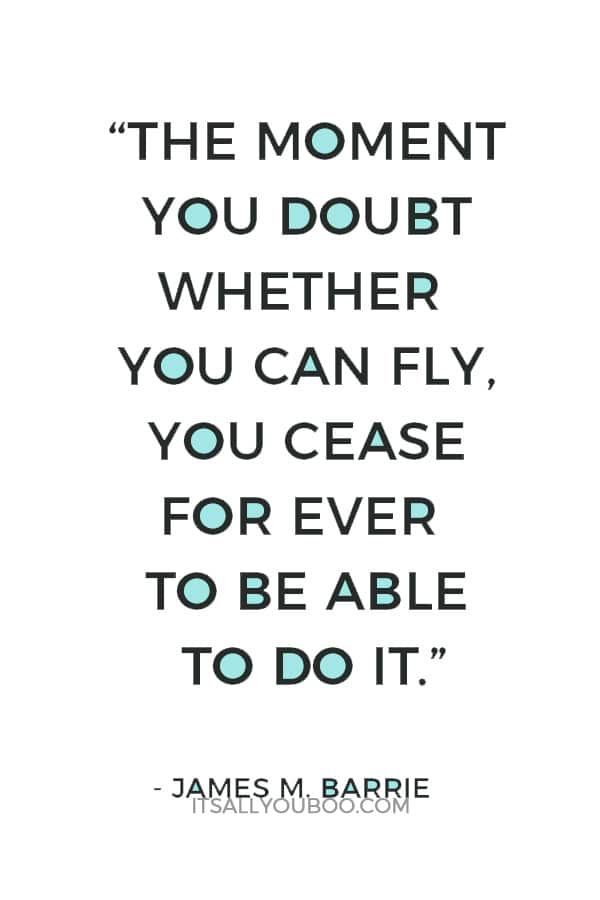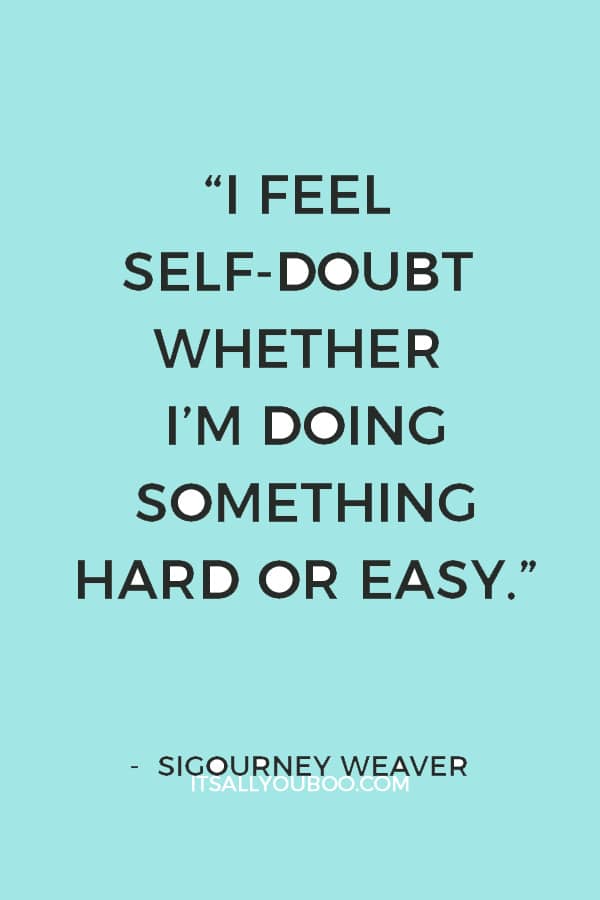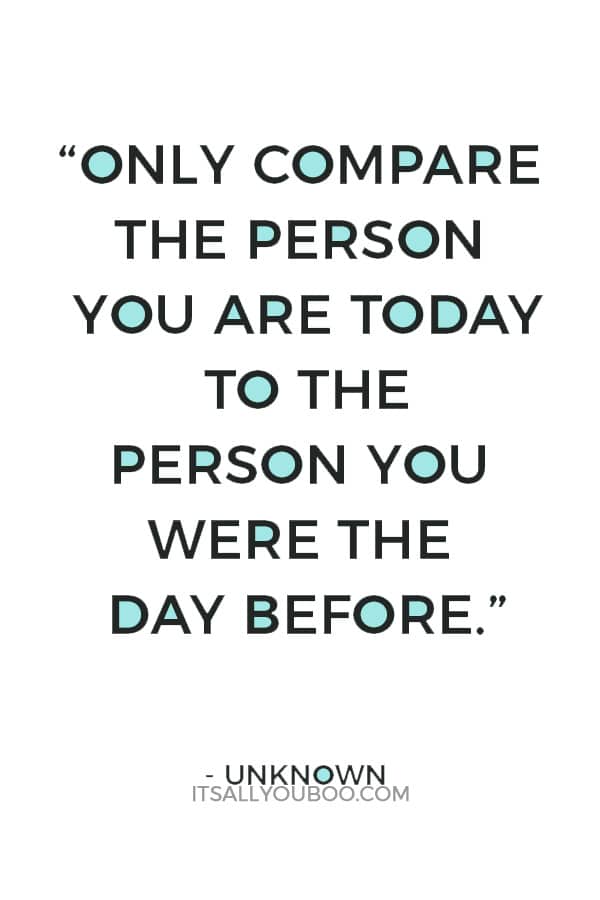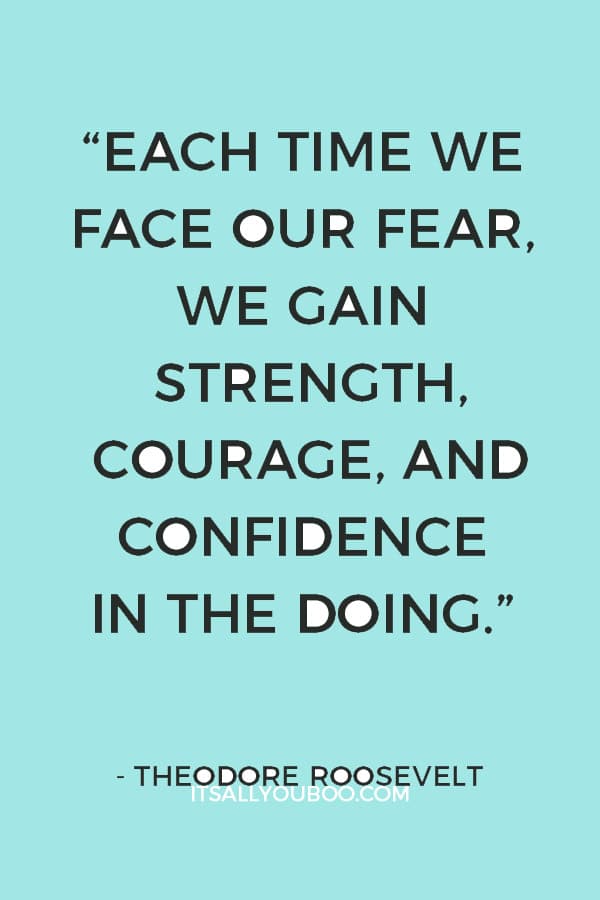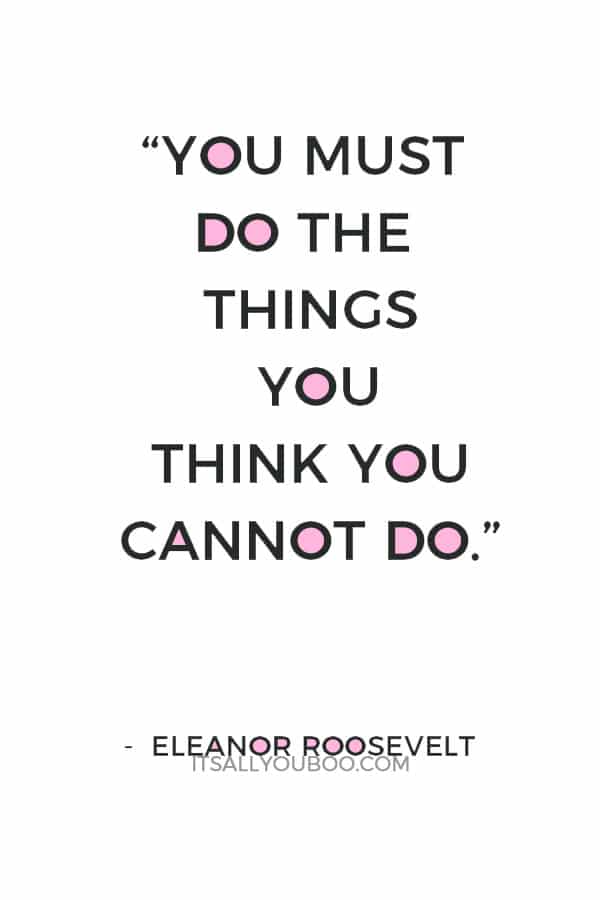How do you overcome imposter syndrome?
What does imposter syndrome even feel like? Do I have it?
Let me ask you a question. Have you ever had the sneaking suspicion that no matter how successful you, you’re still not quite good enough?
If so, you’ve most likely run into something that’s all too common: imposter syndrome.
Now, you might be wondering how to overcome imposter syndrome. Or even what it is.
THIS POST MAY CONTAIN AFFILIATE LINKS.
IF YOU MAKE A PURCHASE FROM THESE LINKS, I MAY EARN A SMALL COMMISSION.
CLICK HERE FOR MY FULL DISCLAIMER STATEMENT.
What is Imposter Syndrome?
Imposter syndrome is that icky feeling that despite how successful or accomplished you appear to others, deep down, you’re a fraud.
Writer and poet Maya Angelou described imposter syndrome perfectly.
“Each time I write a book, every time I face that yellow pad, the challenge is so great. I have written eleven books, but each time I think, ‘Uh oh, they’re going to find out now. I’ve run a game on everybody and they’re going to find me out.”
Sound familiar?
I get it. I’ve dealt with imposter syndrome myself.
Despite running a very successful freelance writing business, being a blogger and becoming a financially independent single mom of two, I still get a case of the “not good enoughs” every so often.
And if imposter syndrome gets you down too, you know how much it sucks.
But the good news is, it doesn’t have to be that way. Beating imposter syndrome is totally doable if you know how to approach it.
If you’re ready to kick self-doubt to the curb and give your confidence a big-time boost, here’s how to overcome imposter syndrome for good.
Imposter Syndrome Definition
Imposter syndrome is a concept that’s been around since the 1970s. Nailing down what it means can be a huge help in how to overcome imposter syndrome.
Here’s how it’s defined in a nutshell: “A psychological phenomenon in which people are unable to internalize their accomplishments.”
So what does that mean in non-psychologist speak?
Basically, imposter syndrome means that no matter what you achieve your mind isn’t able to wrap itself around the idea that you’re the real deal.
Imposter syndrome isn’t physical and it’s not a disease. It’s essentially a mental roadblock that keeps you from feeling confident and believing that you’re worthy.
👉🏽 RELATED POST: Confidence Boosting Quotes
Recognizing the Signs of Imposter Syndrome
If you want to learn how to overcome imposter syndrome, there are some dead giveaways you need to know. The most common imposter syndrome signs include:
- Feeling that your success is unwarranted
- Believing that luck, not your hard work, skills or unique talents, is the reason for your success
- Assuming that anyone is capable of achieving the things that you have and that you’re “nothing special”
- Brushing off your success by minimizing your role in achieving it and/or transferring the responsibility for your success to others
- Reading compliments or praise as someone being nice, rather than showing genuine admiration
- Putting extreme pressure on yourself to not fail
- Downplaying your accomplishments as unimportant
You might also have a tendency to self-sabotage so you can’t reach your true potential.
I’ve done this before. Procrastination is my personal bugaboo and I can’t tell you how many times I’ve put off freelancing writing projects until the last minute out of fear that it would end up being the worst thing I’ve ever written.
That just leads to more stress, more anxiety, and more second-guessing. It’s imposter syndrome at its finest.
What Does Imposter Syndrome Feel Like?
Learning how to overcome imposter syndrome means knowing what it feels like for you personally. Because it can be different for everyone.
For me, imposter syndrome mostly feels like I’m wearing two different faces.
One is my “professional writer, personal finance expert, pro-blogger” face. The other one is my “oh my God, how much longer can the charade last?” face. That one most closely resembles a stressed-out chihuahua.
If you haven’t sorted out how you feel about imposter syndrome, or how it makes you feel, journaling daily about it can help.
Grab a notebook or open up a blank document on your laptop and put it all down. Every doubt, every fear, every anxiety-inducing thought that makes you feel like you’re not good enough.
It’s not a magic bullet for how to overcome imposter syndrome but the act of writing out your feelings can help you put them in perspective.
👉🏽 RELATED POST: 22 Ways to Become Your Best Self
How do You Know if You Have Imposter Syndrome?
Is it imposter syndrome or just the occasional bout of self-doubt?
There can be a fine line between the two but there are some ways to tell if you have imposter syndrome or not. See if you fit one of these five imposter syndrome personalities:
#1. The Perfectionist:
The Perfectionist gets all tied up in how things are done and what the end result turns out to be. And if even the teeniest thing goes wrong, then they end up feeling like a complete failure.
#2. The Expert:
If the Perfectionist is the doer, the Expert is the thinker when it comes to imposter syndrome. Their big Achilles’ heel is feeling like they’re not good enough or unworthy when they don’t know something or having trouble understanding a new concept or idea.
👉🏽 RELATED POST: Stop Stressing About Being Perfect
#3. The Soloist:
Being a Soloist means you have to do it all, otherwise, it won’t be done right. And if you have to ask for help to get something done, then you might as well throw the whole thing out the window because your need for help is a sign of failure.
#4. The Natural Genius:
The Natural Genius has something in common with the Expert, in that it’s all about what you know (or what you don’t). Someone who has the Natural Genius variety of imposter syndrome might feel like that if they can’t get something down the first time, they’ll never get it and shouldn’t try again.
#5. The Super:
The Super can wear different hats–super mom, super business owner, super blogger, super whatever-it-is-you’re-striving-to-be. The Super’s biggest challenge is feeling like they have to juggle all the things, all the time and do it all perfectly without a single mistake. (And in case you’re wondering, this one right here speaks to me on all levels.)
👉🏽 RELATED POST: What's Your Superpower?
Any of these sounding a little too close for comfort? If so, then you most likely have imposter syndrome.
But remember, this isn’t something you’re stuck with. If you truly want to figure out how to overcome imposter syndrome, you have to be prepared to deal with it head-on
How to Overcome Imposter Syndrome And Believe in Yourself
When it comes down to it, imposter syndrome is negative self-talk. It’s you telling yourself that you’re not good enough or you’re a fake or the talent and skill that others believe you have is an illusion.
If you need some actionable tips for how to overcome imposter syndrome, here’s a checklist to get you started:
#1. Start a “Nice” File
The first step in beating imposter syndrome may be one of the hardest because it requires you to acknowledge all the positive things others have said about you.
A nice file is a place where you record praise, compliments, accolades–anything you can reference when you feel imposter syndrome creeping in. Bonus tip: keep it on your phone so you can take it with you wherever you go and get a little confidence boost whenever you need it.
#2. List Your Achievements
Once you’ve got your nice file going, start a second list of all your accomplishments. Include all your wins, big and small. Then any time you feel like something you’re working on is doomed to fail, you can pull it out as a reminder of how far you’ve come.
Really be thorough, don’t leave anything out. Once you add it all up, you may surprise yourself at just how much you’ve achieved.
👉🏽 RELATED POST: How to Stop Being Jealous Of Others
#3. Swear Off Comparisons
Repeat after me: Comparisons are your enemy.
When you compare what you’re doing in your business, with your money or your life in general, you take your eyes off your own prize and start chasing theirs. Then when you don’t achieve it, you feel like a failure and imposter syndrome wins.
So when it comes to comparisons, there’s a simple rule to follow: don’t do it.
If you find yourself comparing your own journey to someone else’s, pull out the nice file and the accomplishment list. Then refocus on your goals and the next step you need to take to move them forward.
Stop being jealous post here
#4. Embrace Imperfection
Not being perfect is actually a great thing and here’s why. Every time you make a mistake, you learn how to do it better the next time.
I’m 5+ years into running my freelance writing business and I long ago learned that being done far exceeds being perfect. And I’m still learning new things to adapt and grow my business every day.
So give yourself the room and the grace to mess up occasionally. And when you do, use that as an opportunity to take something useful and positive away from it.
👉🏽 RELATED POST: How to Be Comfortable With Yourself
#5. Learn Your Triggers
If you’ve pinpointed which of the imposter syndrome personalities you most lean toward, you’re ahead of the game. You can use that to identify the triggers that send you into a shame and self-doubt spiral.
For example, I’ll admit that one of my triggers is being told by other moms that they’re amazed by everything I’m able to do as a single parent. That should be encouraging but instead, it just makes me pile on the pressure to do more and be more.
If you don’t know what your triggers are yet, try a little experiment.
For one week, make a note of every time you felt imposter syndrome take hold and detail what happened just before. That can help you figure out what’s most likely to spark your negative feelings so you can put a positive spin on your self-talk.
#6. Visualize Your Success
Visualization is something I didn’t believe in for the longest time. And then I tried it and it changed everything.
Seeing yourself being successful, confident and happy inside your head is the key to manifesting that in the real world. When you can visualize it clearly, that can give you a blueprint to follow for achieving it.
This is one of my super-secret tricks I use for crushing my goals. I set a goal, then I create a specific mantra around that goal. Then I put that mantra on auto-repeat in my head as I work toward whatever it is I’m trying to achieve.
It’s a simple way to remind myself to stay focused on my goal. If you haven’t tried visualization yet, give it a trial run and see how effective it is for quieting imposter syndrome.
#7. Open Yourself Up to Asking for Help
I completely get the desire to want to do it all yourself, with no outside help. That drive has been one of the things that’s helped me become successful–but it’s also the reason that I’ve ended up burned out more than once.
Here’s the truth. If you want to overcome imposter syndrome for good, you have to get comfortable asking for help when you need it.
It’s not an admission of weakness to say you need help. And in fact, it can be a good thing if it helps you to get off the endless (and exhausting) hamster wheel of trying to do it all.
#8. Ditch Limiting Beliefs
Limiting beliefs are thoughts and ideas that keep you from going after what you truly want.
For example, say you want to start a blog or an online business. This is your BIG DREAM in life but you don’t chase it down because inside your head, all you here are thoughts like these:
- “You don’t have a business degree so you don’t have a clue how to run a business.”
- “Someone else has already started a blog around the topic you want to cover so why would anyone read yours?”
- “If you can’t do it perfectly then it’s not worth the effort.”
These are all limiting beliefs that you might run into with imposter syndrome. And you know what? These beliefs suck the life and the enthusiasm right out of you.
👉🏽 RELATED POST: How to Clear Limiting Beliefs
The best way to overcome limiting beliefs is to counter them with ones that remove the limits.
So for example, instead of saying that you can’t do something or you don’t know something you can swap it out for I can’t do it yet or I don’t know it yet but I can learn.
Flipping the switch on limiting beliefs and self-doubt isn’t always easy. But once you learn how to overcome imposter syndrome, nothing can stand in the way of your success–or keep you from feeling good about it.
Printable Black & White Wall Art Quotes
Ready to feel more confident in yourself? To overcome imposter syndrome for good? Get your 10 FREE printable self-confidence quotes!
They’re perfect for your office, home bedroom, or wherever you need to find inspirational daily. Each design is black and white and features brushed ink letter detailing.
This download comes with 10 high-resolution graphics ready to be printed and posted.
Ready to face imposter syndrome in your own life? Here’s a recap of everything you’ve learned:
- What Imposter Syndrom is
- The signs you’re feeling like an imposter
- How imposter syndrome feels
- Strategies for overcoming imposter syndrome
Get started today, by building your confidence in yourself!
Tired of feeling like an imposter? You are good enough! Here's how to overcome imposter syndrome, including signs to check if you have it by @bosssinglemama. #Confidence #Insecurities #ImposterSyndrome
How do you overcome imposter syndrome?

More About Guest Contributor
Rebecca Lake is a finance expert, freelance writer, and blogger at Boss Single Mama. She teaches moms how to make money, save money and live frugally so they can enjoy financial freedom and stay home with their kids.
Last Updated on July 23, 2024


